Businesses and households should prepare for a potential resurgence of prolonged intermittent power outages, as Sunon Asogli, one of the country’s major electricity producers, has halted operations, according to a warning from the Institute for Energy Studies (IES).
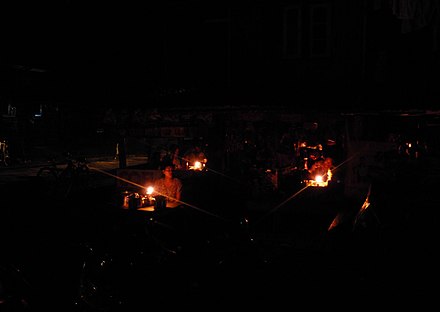
The IES stated in its latest sector analysis, “If you are experiencing a ‘low-key dumsor,’ be ready for an extended version of it due to the government’s hesitance to take decisive action on the underlying causes.”
This warning follows the shutdown of the Sunon Asogli Power Plant, which generates approximately 12-15% of the nation’s electricity from its 560-megawatt facility.
The plant ceased operations two weeks ago due to unpaid debts amounting to $259 million. The impact of its absence from the national grid is already being felt nationwide.
The IES reported that despite urgent appeals from Ghana Grid Company Limited (GRIDCo) to restore operations and relieve the growing pressure on the national grid, Sunon Asogli has remained firm in its stance, citing insufficient operational funds.
The power producer is demanding an immediate payment of at least $60 million to address its operational debts and resume electricity generation.
This standoff highlights what IES describes as “longstanding issues” within Ghana’s power sector, particularly the inability of utility companies and the government to fulfill payment obligations.
The current situation threatens to destabilize the already fragile power balance in the nation. The IES noted, “The sudden removal of 560MW from the system has created a vacuum that other power producers are unlikely to fill quickly, considering the limitations of generation and ongoing financial pressures in the sector.”
Even if alternative power sources are found, IES warns that their generation costs could be higher, potentially leading to increased tariffs for end-users, further straining both citizens and businesses.
The crisis reflects deeper structural problems within Ghana’s energy sector, according to IES. They explained, “Power producers in Ghana frequently experience delayed payments due to complex debt cycles, poor revenue collection, and cash flow challenges within the sector.”
These difficulties are exacerbated by high fuel prices, currency depreciation, and rising operational costs.
The economic implications could be significant. IES stated, “If ‘dumsor’ returns, Ghana’s economy may suffer considerable setbacks, especially as power shortages disrupt productivity, raise operational costs, and deter investment.”
The institute emphasized the risks posed to healthcare facilities, educational institutions, and small and medium enterprises, all of which heavily depend on a stable power supply.
This current crisis echoes Ghana’s past struggles with power stability.
In recent years, the country had made strides in aligning supply with demand to prevent the prolonged outages characteristic of the infamous ‘dumsor’ era. However, the IES warns that the situation with Sunon Asogli jeopardizes this stability.
Without immediate action, the systemic debt issues in the power sector risk becoming “a near-permanent feature,” the institute cautioned.
There is an urgent need for both immediate solutions to restore power generation and comprehensive reforms to tackle the sector’s underlying financial challenges.
This situation arises as the nation has recently signed a $260 million financial package with the World Bank aimed at addressing critical challenges in its energy sector.
The agreement, which includes $250 million in credit and a $10 million grant, comes ahead of the December general elections, during which power crises have often been politicized over the past two decades.














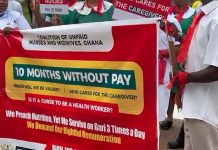

















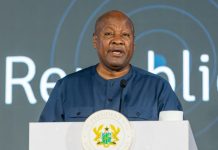



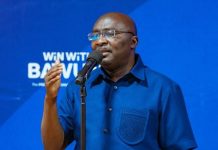
















![[FREE FREE MONEY] Predict and Win a Guaranteed GH¢200 From Us EVERY WEEK](https://wordpress.ghanatalksradio.com/wp-content/uploads/2022/02/Predict-and-Win-Final-09-03-2021-218x150.jpg)
![[Predict & Win – 8th/Oct.] WIN A Guaranteed ¢200 From Us This Week](https://wordpress.ghanatalksradio.com/wp-content/uploads/2021/10/maxresdefault-16-218x150.jpg)
![[Predict & Win – 2nd] WIN A Guaranteed ¢200 From Us This Week](https://wordpress.ghanatalksradio.com/wp-content/uploads/2021/09/maxresdefault-50-218x150.jpg)
![[Predict & Win – 25th] WIN A Guaranteed ¢200 From Us This Week](https://wordpress.ghanatalksradio.com/wp-content/uploads/2021/09/maxresdefault-36-218x150.jpg)
![[Predict & Win – 18th] WIN A Guaranteed ¢200 From Us This Week](https://wordpress.ghanatalksradio.com/wp-content/uploads/2021/09/maxresdefault-23-218x150.jpg)
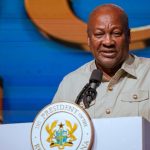
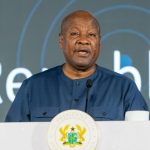






![[National cathedral] See full list of churches that have contributed since 2018](https://wordpress.ghanatalksradio.com/wp-content/uploads/2020/09/Ghana-National-Cathedral-GhanaTalksRadio-100x70.jpg)



